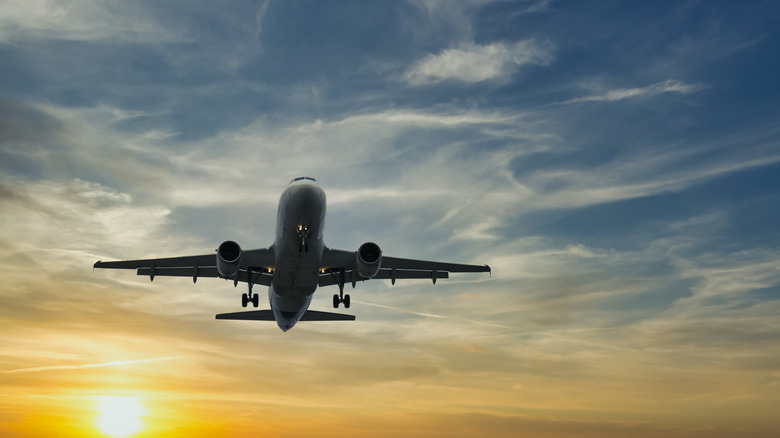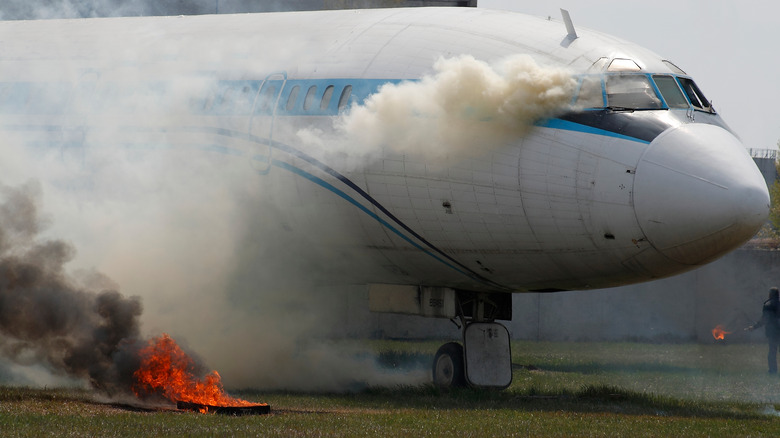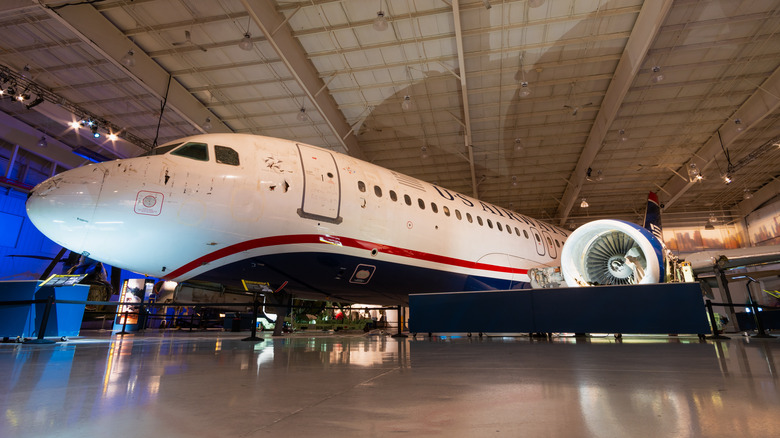What Happens To Luggage After A Plane Crash?
According to ABC News, chances are most people will never be in a plane crash. As MIT statistician Arnold Barnett put it, "You could take a flight every day in an average life span of 70-80 years and never run into trouble." Even if a crash occurs, there's a high probability that passengers will survive. Fly Fright reports that of 140 plane crashes that occurred between 2012 and 2016, over 98% of them did not result in any deaths. If the unexpected somehow does occur, what then happens to people's luggage?
Mental Floss wrote in 2013 that once a plane has crash-landed, passengers are advised to leave everything behind and to get to safety as soon as they can. However, the BBC writes that oddly, many tend to ignore this suggestion. In 2016, aviation expert Ashley Nunes stated that "We are beginning to see a pattern — when there are crashes, people take their luggage."
Many fail to realize that grabbing their luggage can impede evacuation efforts. Ultimately, this can make the difference between life or death. Although this psychological response is not widely understood, the passengers that do leave their items behind can eventually get them back. Maybe.
The airline will compensate for the luggage
Per The Consumerist in 2009, plane crash survivors don't get their luggage back right away. In some instances, they won't even get it back at all due to investigation efforts. In that case, Mental Floss explains that a passenger must fill out a written request within 45 days of the crash to get reimbursed for up to $3,300 worth of their lost luggage. There is, however, a catch. The airline won't compensate for certain items including money, documents, books, jewelry, antiques, and much more. The Week reports that if a survivor is sent to the hospital after a crash landing without any proper documentation, it's up to the airline to provide information on their passengers.
Ultimately, it's the responsibility of both the National Transportation Safety Board and the airline to return or at least attempt to return any luggage or belongings (via the Tampa Bay Times). Of course, all of this depends on the severity of the plane crash and if the items are unscathed. After an investigation is complete, another company is hired to clean the items. As ABC News writes, the luggage might be covered in fuel or other materials. Once cleaned, the items are then returned to their proper owners or family members by the airline. If anything is unclaimed, the airline will send out photos to aid passengers in finding their baggage.
Passengers of Flight 1549 had all of their luggage returned
According to the Tampa Bay Times, passengers from the ill-fated US Airways Flight 1549 had most of their luggage eventually returned. Conde Nast Traveler writes that when the plane was hit by geese after takeoff on January 15, 2009, Captain Chesley "Sully" Sullenberger made an emergency landing in New York's Hudson River. All 155 passengers survived the incident. ABC News reports that as they exited the plane, evacuees had no choice but to leave everything behind. They did not expect to see any of their belongings ever again. However, US Airways hired a third party, Global-BMS, to recover and clean the luggage.
Per CNN, the company sifted through 30,000 items they freeze-dried to ensure that they would not become even more damaged. US Airways also gave the passengers a $5,000 check. Although they were legally not required to recover and return the items, US Airways explained that it was the least they could do.
A few months later, FedEx boxes with items including wallets, cameras, jewelry, and more, were sent to passengers' homes. Global-BMS official Mark Rocco stated that it could help people deal with the trauma. As he explained, "There is a strange bond people have to their stuff, an emotional bond to the incident that's part of their journey forward."


